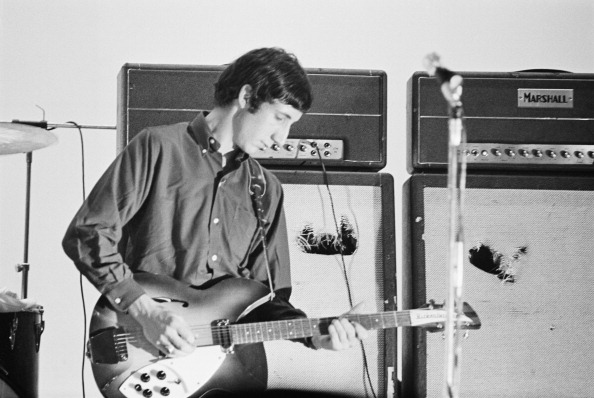The Who were a prominent factor in the British Invasion, a wave of famous British rock bands that captivated the youth of Europe and the United States in the 1960s. The Who, more than The Beatles, The Rolling Stones, or others, sang about and addressed adolescent disappointments and hardships, such as societal pressure or the disapproval of their elders.
In 1965, Pete Townshend, Roger Daltrey, John Entwistle, and Keith Moon made their debut with compositions like the brooding “My Generation.” It began with: “People try to put us d-down (talkin’ ’bout my generation) / Just because we get around (talkin’ ’bout my generation).”
During the same period, there was the wonderful “Happy Jack” and “I’m a Boy.” The Who were dominating Woodstock by 1969. The biggest successes came in the 1970s. “Won’t Get Fooled Again,” “Who Are You,” and “Behind Blue Eyes” cemented The Who’s status as one of the biggest rock groups of all time. In the middle of prosperity, Townshend’s dissatisfaction with worldly demands and distractions were conveyed in “Behind Blue Eyes.”
Townshend’s beliefs
Pete Townshend was an ardent disciple of Indian spiritual teacher Meher Baba. The tune “Baba O’Riley” is about him. Meher Baba preached (nonverbally, since he stopped speaking) that he, like Krishna, Buddha, Jesus Christ, and Muhammad before him, was an incarnation of God (per Britannica).
He argued that all faiths represented God and that everyone should strive for authentic knowledge, the understanding of their oneness with a higher authority. When he wasn’t preaching in India, Europe, the United States, and other locations, Baba engaged in a life of servitude, emphasizing that hedonism activities such as drug usage may distract from the pursuit of genuine awareness.
The other source of diversion was sex. Townshend created the tune after getting gratuities from admirers, according to Far Out Magazine. On June 9, 1970, after a Denver show, he was enticed by groupies but, loyal to Baba’s instructions, retreated to his room solely. He took a seat and composed a prayer, which stated, “When my fist clenches, crack it open.” The seeds of “Behind Blue Eyes” were sown at that very time.
The bridge’s hidden secret
The song’s chaotic bridge comes as a result of “When my fist clenches, crack it open / Before I use it and lose my cool / When I smile, tell me some bad news / Before I laugh and act like a fool”. Pete Townshend appears to be pleading for somebody to stop him from carrying on his basic inclinations. The next lyric emphasizes this notion the most: “And if I swallow anything evil / Put your finger down my throat.” Lust had to be refused and expelled.
“Behind Blue Eyes” was intended as the soundtrack for a villainous in Townshend’s scrapped album-concert cosmic opera “Lifehouse” (per Far Out Magazine). This clarifies other aspects of the article. The antagonist, like any well-crafted bad guy, felt he was a nice guy who does the right thing. “But my dreams aren’t as empty / As my conscience seems to be,” the bad guy screams, implying that he is greater than he appears to be, a person with aspirations, ambitions, and maybe even morality that is more than it “seems.”
The work ends with the antagonist pleading for compassion: “No one knows what it’s like / To be the bad man, to be the sad one / Behind blue eyes.” In this sense, the imaginary character’s intentions and Townshend’s temporarily overlap, with both doing something that they believe is necessary in a society that cannot perceive the way they do.

